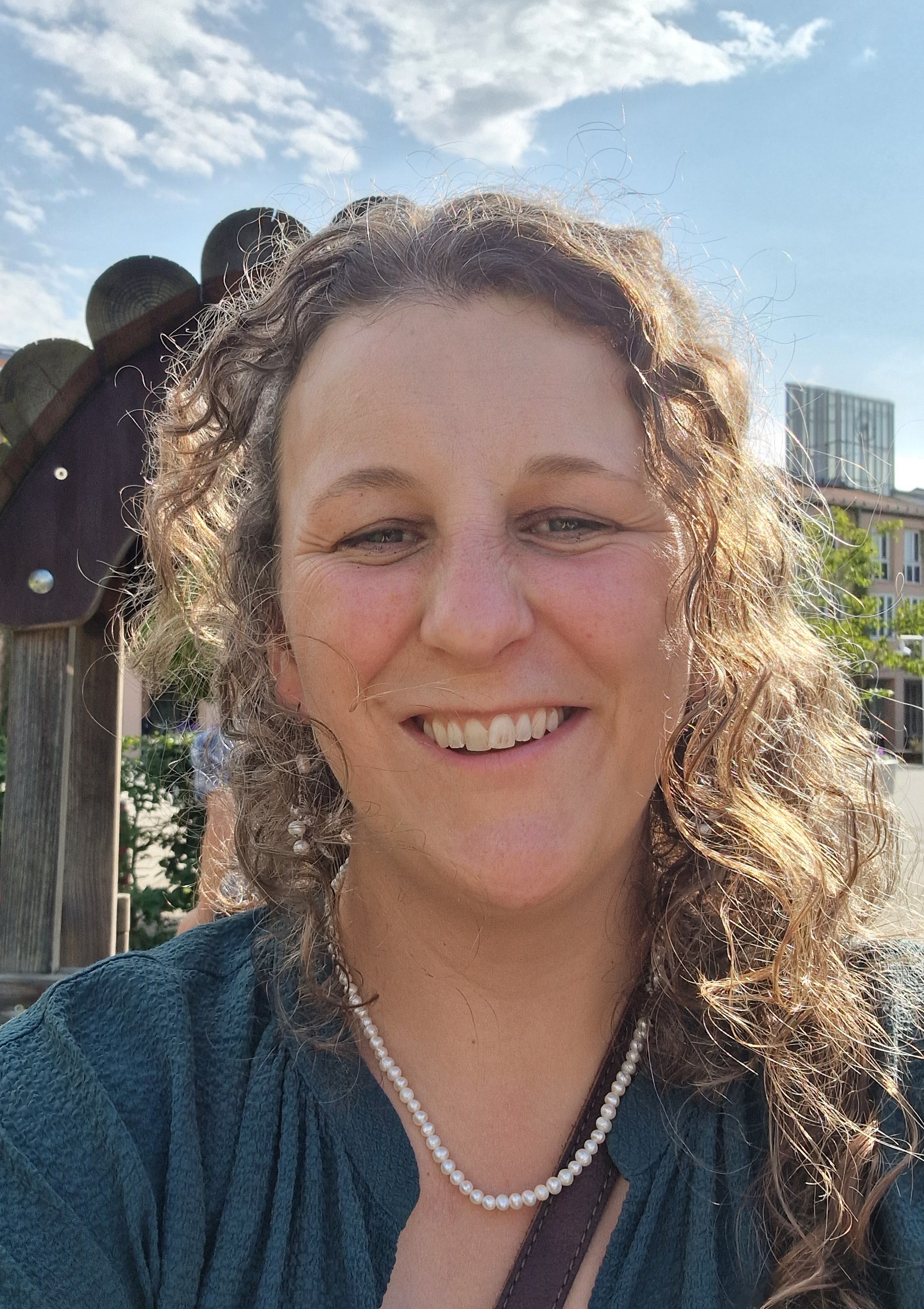Jen, congratulations on being double-longlisted! Tell us about the two texts you translated.
Thank you! So my first entry was with a former copy-editing colleague who’s also a freelance translator, Isabel Hagedorn. It’s an extract from Moritz Matthies’ cheeky crime novel Ausgefressen (Meerkat Mischief), which we’re pitching as ‘written proof that Germans can be funny.’ Ausgefressen is a satire that explores the complications of human relationships and social boundaries, all while taking potshots at our modern-day dependence on technology and weaving in a subtle discourse on unconventional love. It’s the first in a SPIEGEL-bestselling detective series.
The second entry was with fellow Bristol Translates attendee Audrey Delphendahl. We co-translated Marie Luise Kaschnitz’s stream-of-consciousness short stories ‘Lange Schatten’ (‘Long Shadows’) and ‘Ein Tamburin, ein Pferd’ (‘A Tambourine, a Horse’). Kaschnitz won the Büchner Prize in 1955 and appeared on school syllabuses into the 1980s, but in recent years she’s slipped out of the literary spotlight. Nevertheless, the topics she covers are as relevant as ever: trauma, the loss of innocence, and female agency, all served with a foreboding sense of fatalism.
It’s interesting that these were both co-translations. What did the collaboration with your fellow translators look like?
Tremendous fun! The texts were very different, so one session I’d be discussing how to best render a highly intentional lexical chain and the next I’d be riffing amusing animal-based insults. Perhaps counterintuitively, bouncing between such different styles made me appreciate – and enjoy translating – both of those styles even more. The collaborations themselves also had their own characters, which I suppose is due to the vast differences in the texts we were working on, our chosen approaches, and the simple fact that I was working with different people.
So, Audrey and I separately made a ‘good first draft’ of our texts, which we worked through together to produce a joint second draft. Then we gave ourselves a break before our final round of editing, which focused on cohesion and clarity. Isabel and I took it in turns to draft sections that we then finalised together – also running a final round of edits before we submitted. In both cases, it was brilliant to have a partner who was equally, and very deeply, engaged in the text to discuss all of those thorny little issues that inevitably arise, then find our way round them!
You graduated from the MA Translation here at Bristol. Did your experience on the programme feed into these translation projects?
Definitely. Studying the MA gave me the tools to translate in a considered, purposeful way and the ability to articulate my thoughts and choices clearly. I learnt how to develop a robust translation approach that takes the wider communicative context into account alongside a source text analysis – given that the competition asks for a summary of your approach along with your entry, that certainly came in handy! And the MA was brilliant for learning about and testing out different theories and a whole array of translation strategies, which have been ever so helpful in untangling those knotty translation problems we encountered. The practical modules in particular opened my eyes to the range of approaches that can work well for the same source text, and giving and receiving feedback didn’t just develop my practice, it was also excellent training for my collaborations with Audrey and Isabel.
Actually, if I hadn’t done the MA in Translation, I doubt I would have been entering the John Dryden Translation Competition in the first place. I loved the freedom it gave to experiment with all things translation, all with the support of extremely encouraging tutors and alongside really lovely, insightful fellow students. When it came to choosing a topic for my dissertation, I felt confident enough to dip my toe into literary translation – an area that had previously seemed shrouded in mystery, on some far-distant pedestal… Being guided through my dissertation project dispelled that mysticism, and also led to the publication of my translation of Beatrix Kramlovsky’s short story, ‘The Good Winemaker,’ in Ellery Queen Mystery Magazine. So, thank you Bristol!
Thank you, Jen!
